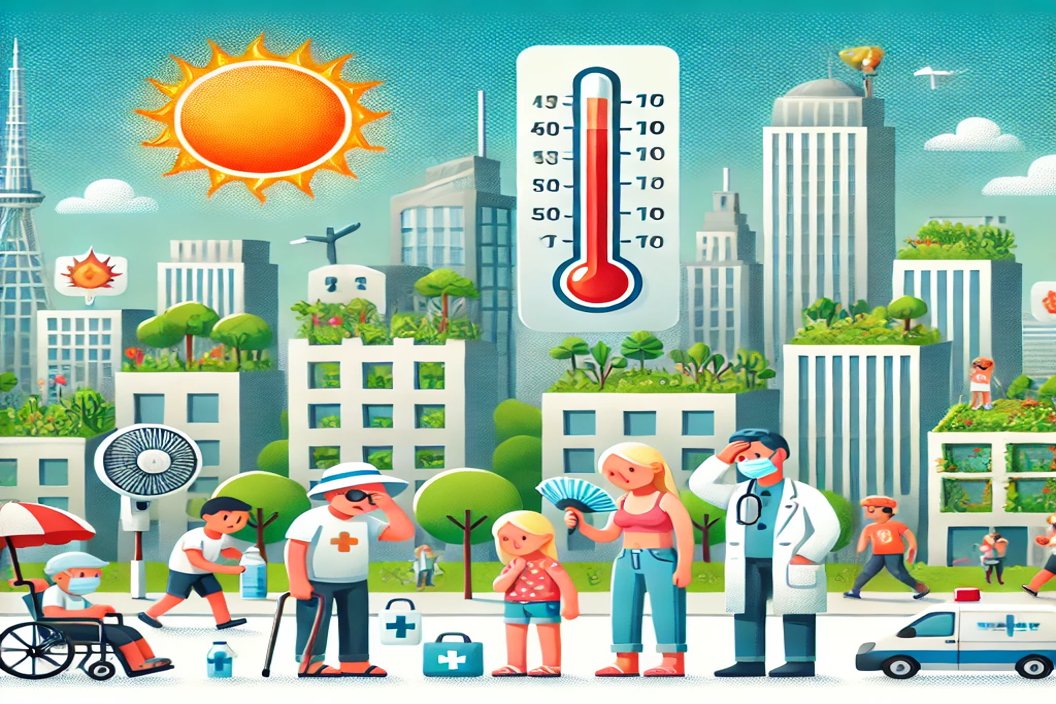Table of Contents
The Rising Threat of Extreme Heat on Public Health
As global temperatures continue to rise due to climate change, extreme heat events are becoming more frequent and severe. This escalating trend poses a significant threat to public health, with implications that extend far beyond just uncomfortable summer days.

Understanding Extreme Heat
Extreme heat is defined as prolonged periods of excessively high temperatures, often accompanied by high humidity. These conditions can lead to heat-related illnesses and exacerbate existing health problems. Vulnerable populations, such as the elderly, children, and those with pre-existing medical conditions, are particularly at risk.
Health Impacts of Extreme Heat
- Heat-Related Illnesses:
- Heat Stroke: This is the most severe form of heat-related illness, occurring when the body fails to regulate its temperature. Symptoms include confusion, loss of consciousness, and hot, dry skin. Without immediate treatment, heat stroke can be fatal.
- Heat Exhaustion: Characterized by heavy sweating, weakness, dizziness, nausea, and fainting. While not as severe as heat stroke, it can progress to it if not addressed promptly.
- Heat Cramps: These are muscle pains or spasms that occur during intense physical activity in hot environments, typically due to dehydration and loss of electrolytes.
- Exacerbation of Chronic Conditions:
- Cardiovascular Diseases: High temperatures can increase the workload on the heart, leading to complications in individuals with heart conditions.
- Respiratory Problems: Air quality often deteriorates during heat waves, aggravating conditions such as asthma and chronic obstructive pulmonary disease (COPD).
- Kidney Disorders: Dehydration caused by excessive heat can impair kidney function and lead to acute kidney injury.
- Mental Health Issues:
- Prolonged exposure to high temperatures can also affect mental health, leading to increased anxiety, depression, and other stress-related conditions. The discomfort and health risks associated with extreme heat can contribute to mental health challenges, particularly in individuals already coping with psychological stress.
Socioeconomic and Environmental Impacts
Extreme heat events have broader implications beyond direct health effects. They can strain healthcare systems, reduce labor productivity, and increase energy consumption as people rely more on air conditioning. Additionally, heat waves can exacerbate inequalities, disproportionately affecting low-income communities that may lack access to cooling resources.
Mitigation and Adaptation Strategies
Addressing the health risks associated with extreme heat requires a multifaceted approach:
- Public Health Interventions:
- Developing early warning systems and heat action plans to alert and protect vulnerable populations.
- Increasing public awareness about the dangers of extreme heat and preventive measures.
- Urban Planning and Infrastructure:
- Implementing green infrastructure, such as parks and green roofs, to reduce urban heat islands.
- Designing buildings and public spaces to improve ventilation and provide cooling.
- Policy and Advocacy:
- Enforcing regulations that limit greenhouse gas emissions to mitigate climate change.
- Promoting policies that ensure equitable access to cooling resources and healthcare services.
Conclusion
As climate change progresses, extreme heat will become an increasingly common and severe public health challenge. By understanding the risks and implementing effective mitigation and adaptation strategies, we can protect vulnerable populations and reduce the overall impact on society. It is crucial for policymakers, healthcare providers, and communities to work together in addressing this urgent issue. More…
More blogs: https://sleepingsirens.com

